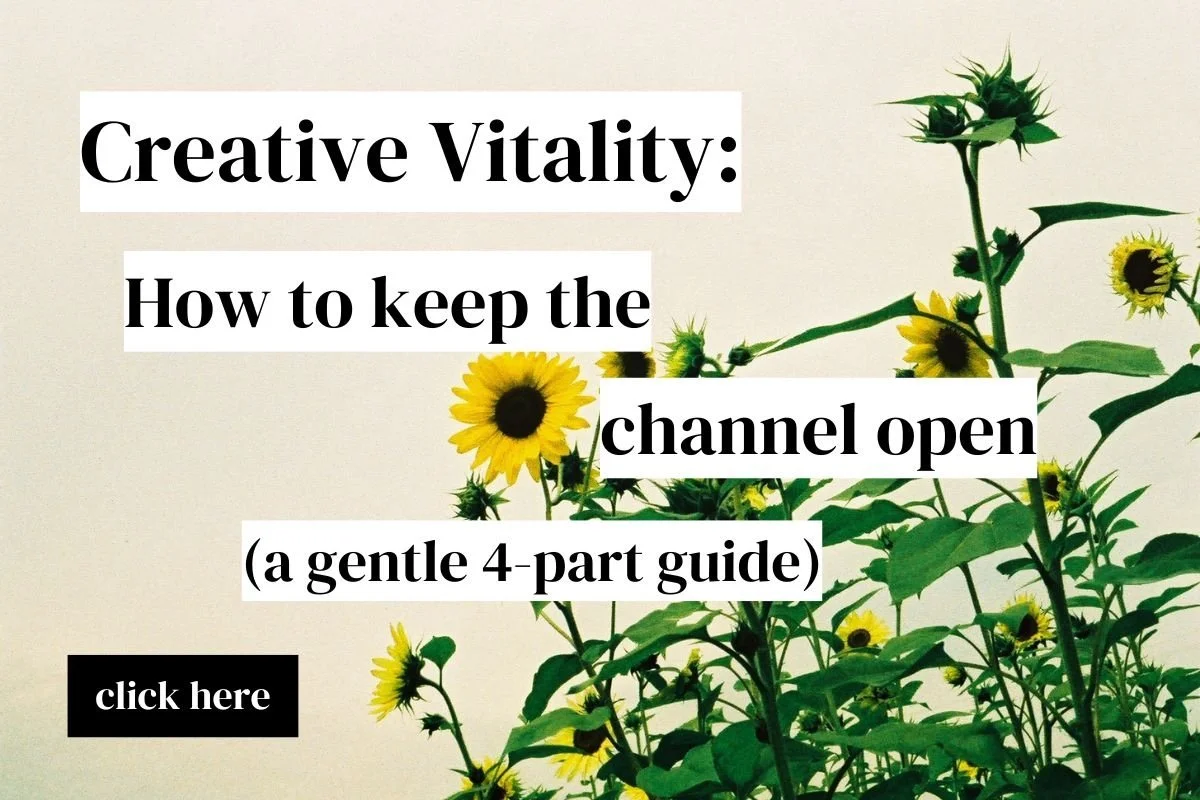The importance of forgetting
There’s a major part of the creative process that sometimes gets overlooked. Maybe because it doesn’t, in all honesty, look like much from the outside. Or maybe because it’s an experience we’re often scrambling away from when it shows up elsewhere in our lives.
It’s not the dream-flurry of writing when things are flowing easily from your pen.
And it’s not the satisfying before-and-after of a draft that’s been revised into something brand new.
It’s the part where you step away entirely. Ruthlessly. Where, for a luxurious amount of time, you abdicate all responsibility for the made thing.
In other words, you let yourself forget about it for a while.
You do other things. You let the work sit, simmer.
You work on a different project, maybe. Or leave your preferred medium altogether.
You live your life, off the page.
Listen to me, you sweet human: This forgetting part is essential!
Poets have known this for a long time—here’s William Wordsworth more than two hundred years ago:
“Poetry is the spontaneous overflow of powerful feelings: it takes its origin from emotion recollected in tranquility.”
So we need, first of all, the spontaneous overflow of experience + initial creation. Then, we need the calmer, quieter space of tranquil recollection, where the crafting and the polishing get done.
Do you know what comes between those two vital phases?
Dilly dallying. Long stretches of time & space. Meandering elsewhere. Thinking about other things. Working on other things.
This is the medicine of forgetfulness.
Especially when you’re working on something bigger—something that requires shaping, reshaping, and editing—this nothing period is vital.
It isn’t about laziness (barf) or even procrastination. Rather, it’s the only way to come back to your work with fresh eyes.
And there’s no hack for this! No matter what the instagram ads tell you. (They’re lying, I pinky-promise.) There’s no “secret method” that gets around the simple fact that time—real, lived time, and all the experiences we accumulate when we let it unfold broadly—is one of the most important ingredients in the editing process.
~~~
If you’ve got a sticky relationship with Time or its drunk cousin, Urgency (hellooo, capitalist conditioning), this is the moment in the creative process when that inner noise can get kind of loud. It says things like…
You should be farther along! or
You’re gonna fall behind! or
If you were serious about your [book / newsletter / project], you'd be working on it right now!!
And I get it. I really do, because that raucous voice still shows up in me too sometimes.
And because the first time I saw those harmful messages—“How to write your book in 4 days!” “Create a 90-day writing plan and hit 6 figures!”—my default programming was to assume I must be doing something wrong.
It’s not just that these messages are false or oversimplified (they’re both). It’s that they completely miss the joy and richness of the creative process itself.
They treat creativity like a business that needs efficiency at all costs.
They treat writing like a task to be conquered.
They pretend editing is mere polish, not a transformational portal.
And they definitely don’t leave space for forgetting—this radical notion that we can turn away from our work sometimes. And that turning away not only won’t harm us, but will actually serve a fruitful purpose.
What I want you to know today:
Good writing is slow.
Deep writing is slower.
Even when the ideas come in a rush—which they will, sometimes—the larger shape of a creative project takes time to emerge. It benefits from spaciousness. And wandering. And a luxurious pace of thought.
And nowhere does this matter more than in the editing phase.
When you’re building something that’s going to require multiple iterations—a book, a longform essay, or some other larger body of work—the best gift you can give yourself is time.
Time to go away and come back.
Time to mull, integrate, and return with curiosity.
Time to forget, so you can see the work clearly again once you remember.
This isn’t wasted time.
It’s creative time.
Invisible, maybe. But essential.
